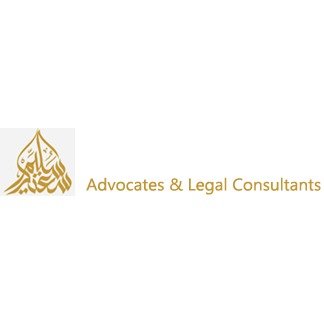Best Investment Lawyers in United Arab Emirates
Share your needs with us, get contacted by law firms.
Free. Takes 2 min.
Or refine your search by selecting a city:
List of the best lawyers in United Arab Emirates
About Investment Law in United Arab Emirates
The United Arab Emirates (UAE) is known for its attractive investment environment, bolstered by a strategic location, modern infrastructure, and a business-friendly legal framework. The country has made significant strides in diversifying its economy, moving beyond oil and gas to sectors such as tourism, real estate, and technology. The UAE offers investors a favorable business climate with free zones, low tax rates, and 100% foreign ownership in many sectors. Investment laws are continually evolving to ensure economic competitiveness and to attract foreign direct investment (FDI).
Why You May Need a Lawyer
Investment in the UAE, like any other jurisdiction, can be complex, particularly for foreign investors unfamiliar with local laws and regulations. Common situations where legal assistance may be needed include:
- Setting up a new business or investing in an existing business entity.
- Understanding and complying with local investment regulations and legal requirements.
- Navigating the free zone regulations and ownership laws.
- Managing lease agreements or real estate transactions.
- Resolving disputes or conflicts with local partners or entities.
- Ensuring compliance with employment, tax, and commercial laws.
Local Laws Overview
The UAE's legal system is a blend of Islamic Sharia law and civil code, which influences investment legislation. Key aspects relevant to investment include:
- The UAE Cabinet Resolution No. 16 of 2020, which allows 100% foreign ownership in certain sectors.
- Commercial Companies Law that governs the formation of business entities.
- Regulations surrounding the many free zones, offering tax incentives and 100% repatriation of profits.
- The UAE's commitment to agreements that prevent double taxation and protect international investments.
- Comprehensive Anti-Money Laundering (AML) regulations that affect financial investments.
- Real estate laws, especially in areas such as Dubai and Abu Dhabi, where foreign investment in property is highly regulated.
Frequently Asked Questions
What is the minimum capital requirement for setting up a business in the UAE?
The minimum capital requirement can vary depending on the type of business and the Emirate it is established in. Many free zones have no minimum capital requirements, while others may set a specific amount.
Can a foreign investor own 100% of a business in the UAE?
Yes, under the UAE's amended Commercial Companies Law and specific free zones, foreign investors can own 100% of a business without a local partner.
What are the benefits of investing in a free zone?
Free zones offer numerous advantages, including 100% foreign ownership, no import or export taxes, and full repatriation of profits and capital.
Are there specific sectors where foreign investment is restricted?
While many sectors allow 100% foreign ownership, certain strategic industries may have restrictions and require a local partner.
What is the process for acquiring real estate in the UAE?
Foreign investors can purchase property in designated freehold areas. The process typically involves selecting a property, completing a sale agreement, and registering with the Dubai Land Department or the applicable authority.
How are disputes resolved between business partners?
Disputes can be resolved through arbitration, which is common in the UAE, or through the court system, depending on the terms agreed upon in the contract.
What documents are needed to start a business in the UAE?
Documents typically include a completed application form, passport copies of shareholders, business plan, and a tenancy agreement, among others.
How long does it take to set up a new business in the UAE?
The timeline varies, but setting up a business, especially in a free zone, can take from a few days to several weeks depending on the industry and compliance requirements.
What tax benefits exist for businesses in the UAE?
The UAE has zero corporate and income tax in most sectors. However, VAT of 5% applies to goods and services, with certain exemptions.
Can an existing foreign business establish a branch in the UAE?
Yes, foreign businesses can set up a branch office in the UAE, subject to compliance with UAE commercial law and obtaining the necessary licenses and approvals.
Additional Resources
For more information and assistance, you can consult the following resources:
- The UAE Ministry of Economy, which provides guidance on business and investment opportunities.
- The Dubai Department of Economic Development for licensing and regulatory guidance in Dubai.
- The Abu Dhabi Department of Economic Development for insights into business opportunities in Abu Dhabi.
- Free Zone authorities for specific guidance on operating within their jurisdiction.
- Legal consultancy firms specializing in investment and business law within the UAE.
Next Steps
If you need legal assistance for investment in the UAE, consider the following steps:
- Define your investment goals and identify the sector you are interested in.
- Consult with a reputable legal advisor who specializes in UAE investment law.
- Conduct thorough due diligence on the legal requirements and potential risks.
- Prepare all necessary documentation and fulfill any regulatory requirements with the assistance of your legal advisor.
- Explore free zone or mainland options based on your business needs and legal advice.
Taking these steps can help you navigate the complex legal landscape and make informed decisions about your investment in the UAE.
Lawzana helps you find the best lawyers and law firms in United Arab Emirates through a curated and pre-screened list of qualified legal professionals. Our platform offers rankings and detailed profiles of attorneys and law firms, allowing you to compare based on practice areas, including Investment, experience, and client feedback.
Each profile includes a description of the firm's areas of practice, client reviews, team members and partners, year of establishment, spoken languages, office locations, contact information, social media presence, and any published articles or resources. Most firms on our platform speak English and are experienced in both local and international legal matters.
Get a quote from top-rated law firms in United Arab Emirates — quickly, securely, and without unnecessary hassle.
Disclaimer:
The information provided on this page is for general informational purposes only and does not constitute legal advice. While we strive to ensure the accuracy and relevance of the content, legal information may change over time, and interpretations of the law can vary. You should always consult with a qualified legal professional for advice specific to your situation.
We disclaim all liability for actions taken or not taken based on the content of this page. If you believe any information is incorrect or outdated, please contact us, and we will review and update it where appropriate.
Browse investment law firms by city in United Arab Emirates
Refine your search by selecting a city.
















